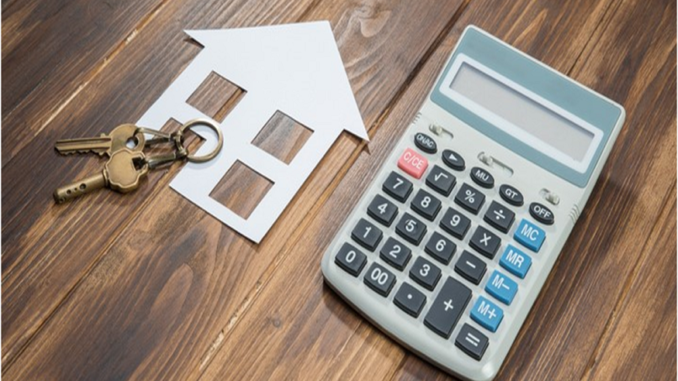
It is possible that renegotiating the terms of your mortgage might be in your best financial interest. If you do so, you may be able to reduce the amount of money you have to pay each month for your mortgage or the total amount of interest that you will have to pay for your home equity loan over the course of its lifetime.
Before you even apply for the loan, you need to give some serious thought to the topic of whether or not you should refinance your mortgage and when you should do it. You should also determine whether or not it is financially beneficial for you to refinance by comparing the amount of money you will save after refinancing to the amount of money it will cost you to refinance the loan. Here’s another explanation of what the process entails https://en.wikipedia.org/wiki/Refinancing.

When would it be a wise decision to apply for a fresh loan?
If you are in a position where refinancing your mortgage will be helpful to your current financial condition, you should probably give serious consideration to doing so. On the other hand, this does to some extent depend on the monetary goals that you intend to accomplish.
Consider this: if your monthly payment were reduced, how would you feel about that? Are you wanting to reduce the total amount of interest that you have to pay? Do you have an immediate need for the money that may be gained by tapping into the equity in your home?
Mortgages now have lower interest rates

The interest rates that homeowners pay on their mortgages are variable because they are affected by a broad variety of variables, including the monetary policy of the United States Federal Reserve, the movements of the market, the economy, inflation, and challenges that are global in scope.
If the interest rate on mortgages falls, you might be able to save money by refinancing into a loan with a lower interest rate than the one you already have. This is because you would be replacing your current loan with one that has a lower interest rate.
To what degree, as a result, do mortgage rates need to fall before you can even consider determining whether or not it is advantageous to refinance? If your new rate is between one and two percentage points lower than your previous rate, the usual rule of thumb is that you should consider refinancing your mortgage if the difference is greater than one percentage point.
Be sure to think about how long you still have left on your current loan before making a decision on whether or not to get a refinancing.

You are interested in obtaining a loan with a shorter duration
If you are ready to get rid of your debt, one option you may want to explore is refinancing your mortgage into a loan that has a shorter term. You may be able to add to the money that you have saved if you are successful in negotiating a reduced interest rate and a shorter payback time for the loan. If you take out a loan for a shorter period of time, the total amount of interest that you will have to pay back will be less.
Be aware, however, that this will most likely result in an increase in the amount that you pay on a monthly basis; as a consequence, you should check to make sure that this modification is suitable with the plan that you have established for your finances. You don’t want to place yourself in a position where you might not be able to pay back your debt, so avoid doing that.
Your property is now worth more than it did before
If the value of your home has improved over time, it may be in your best interest to consider refinancing, particularly if you have other high-interest debts that need to be paid off.
With a cash-out refinance, you can take out a new mortgage for an amount that is higher than what you were previously obligated to pay on your first mortgage, and the difference between the two amounts will be paid to you in cash. There is one choice available to you in the form of a cash-out refinancing, but another one is a home equity loan.
If you wish to make improvements to your home or pay for your child’s tuition, you should also consider the possibility of obtaining a cash-out refinancing.
However, you will want to check to make sure that the interest you pay on the mortgage does not end up being more than the interest you would pay on any other debt that you use the cash to pay down. Click here for more.
You are considering making a change from a variable rate to a fixed one
If you currently have a mortgage with an adjustable rate, commonly known as an adjustable rate mortgage (ARM), and interest rates on mortgages are rising, you might want to consider refinancing your loan and moving to a mortgage with a fixed rate if interest rates on mortgages are rising.
This is because the interest rate that you pay on an adjustable-rate mortgage has the potential to be higher than the interest rate that you would pay on a mortgage with a fixed rate. If you are concerned about the possibility of future rises in interest rates, you can find some relief in the form of peace of mind by securing a mortgage with a fixed interest rate.
When does it not make sense to refinance?
There is a good chance that refinancing your mortgage at this time would not be the best decision. different scenarios below in which it is possible that refinancing your home will not be in your best financial interest.
If your existing mortgage has a prepayment penalty, you need to carefully consider whether or not you will save enough cash to make it reasonable to pay the additional fee in order to get out of your current mortgage early. Also, make sure that you ask your lender whether they are prepared to waive the penalty if you refinance your mortgage with them. This is very important.
When you relocate, do you already have a home in mind that you want to purchase? Establish your point of breakeven in order to guarantee that the costs connected with refinancing will not cause you to incur a financial loss.
If you currently have a home equity loan, which is sometimes referred to as a HELOC, you may need to gain the agreement of your present lender before you can refinance your loan. It’s possible that you won’t be able to refinance your mortgage unless you settle this account first if the numbers don’t match up the way they should.
Last but not least, you are getting very close to being done paying off your mortgage. Your monthly payments will mostly go toward paying down the interest on your mortgage over the first few years of its duration. After a certain number of years, you will have paid off more principle than interest, which indicates that you will have begun to create equity, which is the portion of your property that you truly own.
When you refinance your mortgage with norskrefinansiering.com kredittkort, it’s almost like starting from scratch all over again. Let’s say you started paying off your previous mortgage 10 years ago, and you still have 20 years left to go until it’s paid off. If you refinance into a new 30-year mortgage, you will begin the clock over again at the beginning of the 30-year period.
Before you make the decision to refinance, you should first determine your break-even point and evaluate how the whole expenses of your current mortgage and the new loan, including the total interest, would compare to one another. Take into consideration that refinancing your mortgage typically makes more sense earlier on in the life of the loan.

Leave a Reply
You must be logged in to post a comment.